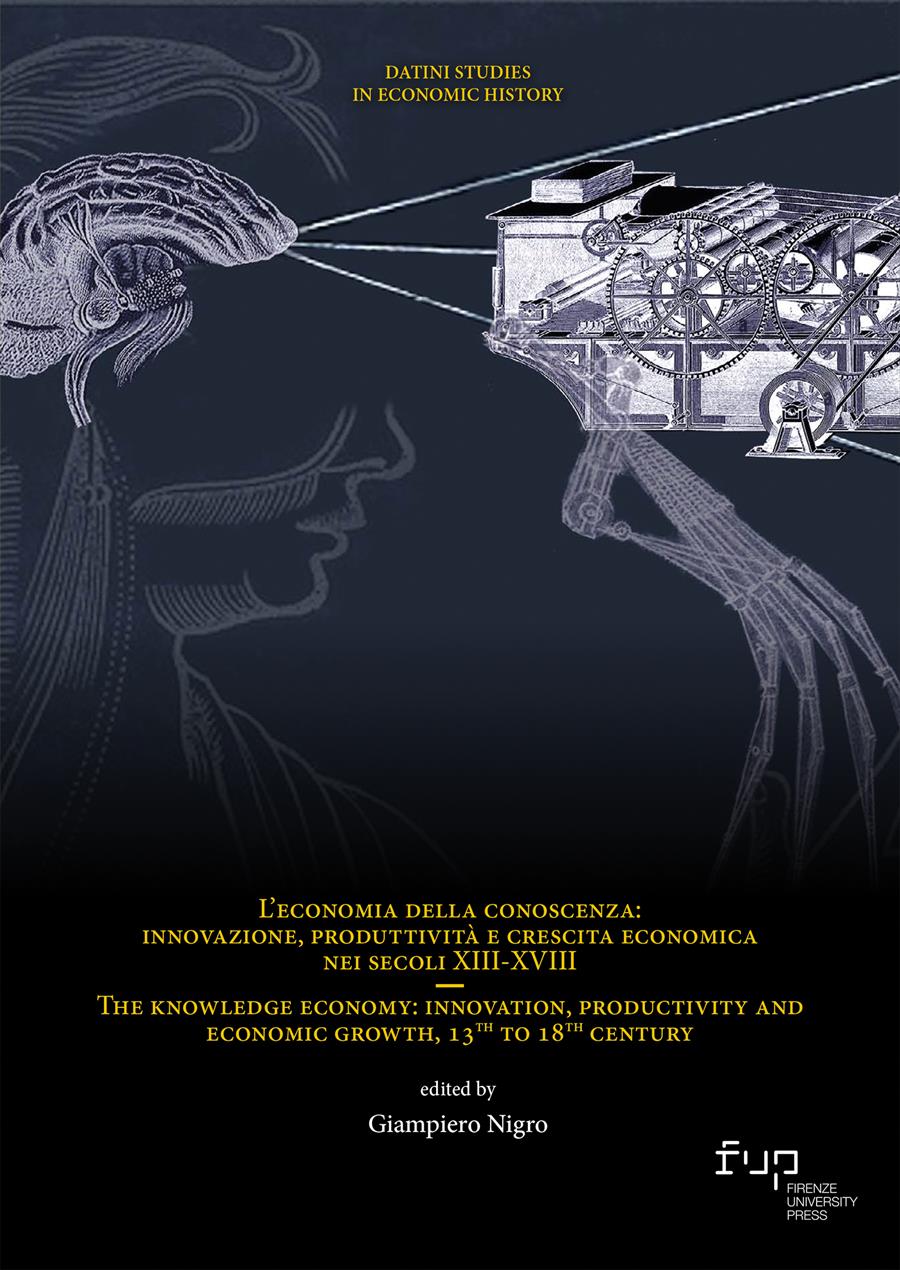Round Table comment: From «useful knowledge» to a «culture of growth»
- Markus A. Denzel
- © 2023 Author(s) |
- CC BY 4.0
- DOI: 10.36253/979-12-215-0092-9.26
we can state that economically useful knowledge could induce innovations which further deepened and widened this economically useful knowledge; and this cycle was at least one of the decisive factors of raising profitability and, as a final con-sequence, of economic growth becoming obvious in the industrial evolutions in different European and later also non-European countries. To say it more clearly: Innovations did influence economic growth. Cultural and institutional processes, which generated knowledge and human capital, could influence the development of labour productivity. Knowledge did contribute to reduce risks in pre-industrial societies through information, communication, and resilience
- Keywords:
- Growth,
- innovation,
- knowledge economy,
- productivity,
- useful knowledge,
Leipzig University, Germany
- Allen, Robert C. 2000. “Economic structure and agricultural productivity in Europe, 1300-1800.” European Review of Economic History 4, 1: 1-25, DOI: 10.1017/ S1361491600000125
- Denzel, Markus A. 2020. “How to make an enterprise resilient: Methodological questions and evidence from the past.” In Strategies, dispositions and resources of social resilience – A Dialogue between medieval history and sociology, ed. Martin Endress, Lukas Clemens, and Benjamin Rampp, 163-82. Wiesbaden: Springer.
- Gimpel, Jean 1975. La révolution industrielle du moyen âge. Paris: Éditions du Seuil.
- Mokyr, Joel 2002. The gifts of Athena. Historical origins of the knowledge economy. Princeton-Oxford: Princeton University Press.
- Mokyr, Joel, Wiebe Bijker, Karel Davids, Wilfred Dolfsma, and Hugo van Driel, “De Geschenken van Pallas Athena. Discussiedossier over kenniseconomie en economi-sche groei.” Tijdschrift voor Sociale en Economische Geschiedenis 1: 110-32.
- Mokyr, Joel. 2016. A Culture of growth. The origins of the modern economy. Princeton- Oxford: Princeton University Press.
- Overton, Mark 1996. Agricultural Revolution in England: The transformation of the agrarian economy 1500-1850. Cambridge. Cambridge University Press.
- Rooney, David, Greg Hearn, and Abraham Ninan 2005. Handbook on the knowledge economy. Cheltenham and Northampton (MA): Edward Elgar.
- van Zanden, Jan Luiten 2009. The Long Road to the Industrial Revolution. The European economy in a global perspective, 1000-1800. Leiden-Boston: Brill.
- von Stromer, Wolfgang 1977. “Innovation und Wachstum im Spätmittelalter: Die Erfindung der Drahtmühle als Stimulator.” Technikgeschichte 44: 89-120.
- von Stromer, Wolfgang 1980. “Eine „Industrielle Revolution“ des Spätmittelalters?” In: Technik-Geschichte. Historische Beiträge und neuere Ansätze, ed. Ulrich Troitzsch and Gabriele Wohlauf, 105-38. Frankfurt/Main: Suhrkamp.
Chapter Information
Chapter Title
Round Table comment: From «useful knowledge» to a «culture of growth»
Authors
Markus A. Denzel
Language
English
DOI
10.36253/979-12-215-0092-9.26
Peer Reviewed
Publication Year
2023
Copyright Information
© 2023 Author(s)
Content License
Metadata License
Bibliographic Information
Book Title
L’economia della conoscenza: innovazione, produttività e crescita economica nei secoli XIII-XVIII / The knowledge economy: innovation, productivity and economic growth, 13th to 18th century
Editors
Giampiero Nigro
Peer Reviewed
Number of Pages
456
Publication Year
2023
Copyright Information
© 2023 Author(s)
Content License
Metadata License
Publisher Name
Firenze University Press
DOI
10.36253/979-12-215-0092-9
ISBN Print
979-12-215-0091-2
eISBN (pdf)
979-12-215-0092-9
Series Title
Datini Studies in Economic History
Series ISSN
2975-1241
Series E-ISSN
2975-1195
